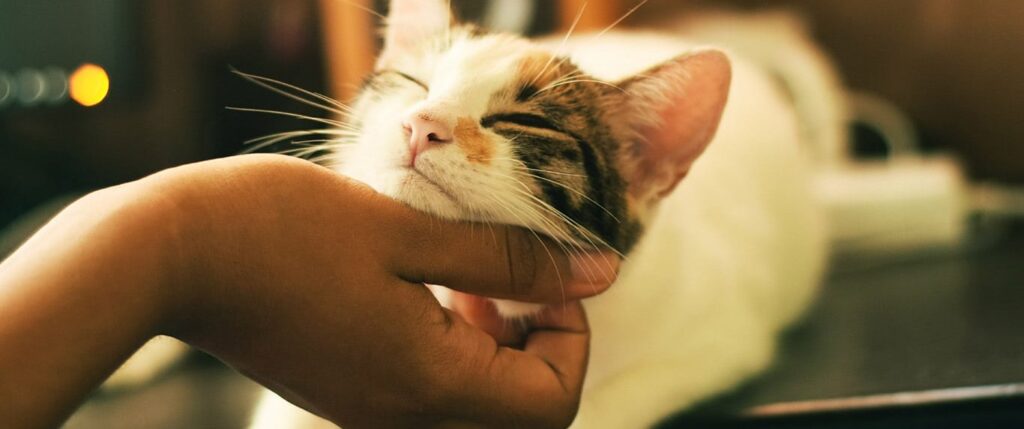When it comes to sounds we delight in hearing, again and again, a cat purring contently while he or she gets a much-deserved ear scratch is right up there.
Although the sound of purring has long been believed to mean your feline friend is happy as pie, it may surprise you to hear that that isn’t always the case. We set out to unravel the mystery around the purr and learned a few remarkable things.
Birds sing to mark territories. Dogs bark when greeting people or other animals, and cats purr, just because they do! The truth is, while there are some good guesses, no one is sure exactly why cats purr.
The obvious reason is cats seem to purr when they’re pleased and feeling good. But cats also purr when they’re hungry, injured, or frightened. Some veterinarians and cat enthusiasts have even seen cats lying alongside each other and purring when one is injured (a behavior known as “purr therapy”).
And, most surprisingly, purring frequencies have even been shown to stimulate bone regeneration! The frequency of purring vibrations – which range from 20Hz up to 150Hz – is thought to promote bone growth, as bones harden in response to the pressure.
If you want to better understand what makes your cat tick, it often comes down to knowing your cat’s personality and what type of behavior is typical for him or her.
If your cat is purring softly while in a relaxed body posture curled up in your lap, you can safely assume that he or she is content.
If they’re purring loudly and rubbing up against your leg, he or she is probably asking you for something (like a food bowl refill or ear scratch).
If he or she is purring and their hair is standing up, their ears are flat on their head, and their tail is tucked between their legs, they could be feeling anxious, stressed, frightened, irritated, or sickly.
Then there is the “purr stare”. If your cat spends a lot of time sitting next to you staring at you or sitting on the floor looking up toward you and purring, it’s probably because he or she wants you to pay attention to him or her.
“Cats are individuals, and they communicate in many different ways – facial expressions, body language, and yes, purring,” said David Barritt of Network for Animals (NFA).
“If you’re the proud owner of a purr machine, and want to decode what their purring means, pay attention to what prompted the purring and what it leads to.”
Featured image credited to: Yerlin Matu on Unsplash

